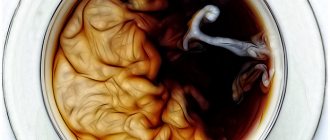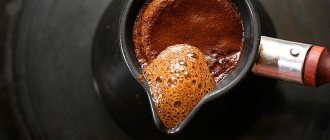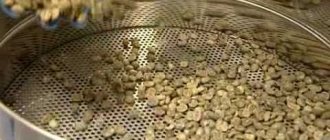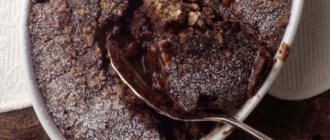Why do you want coffee?
The constant desire to drink coffee is explained by several reasons. A person may have a deficiency of essential microelements in the body. It contains some essential substances. Among them:
- magnesium;
- potassium;
- manganese;
- riboflavin;
- pantothenic acid.
In addition, coffee beans contain chlorogenic acid, which functions as an antioxidant that the body itself is not capable of producing. This acid is what gives the drink its bitterness. Grains contain many amino acids and protein structures.
If there is a deficiency of macro- and microelements in the body, then the need for coffee increases.
The reasons why you constantly want coffee can also be attributed to habit. The coffee drink is a natural energy drink that is addictive. A person, on a subconscious level, cannot live normally without drinking at least a cup.
Why do I want coffee?
Drink lovers sooner or later ask themselves the question - why do I want coffee? There may be several reasons.
- Habit . Coffee is a strong natural energy booster; the body gradually gets used to consuming caffeine and other chemical compounds in coffee.
- Need . Lack of minerals underlies many gastronomic addictions. If you really want coffee, then perhaps something is missing in your body and you should reconsider your nutritional balance.
- Ritual . Do you crave coffee in a certain situation - on a weekend morning, at a meeting with friends, after a public speech or before an exam? Then a drink for you is simply a condition of personal psychological comfort.
How a habit is acquired
Once ingested, caffeine quickly enters the bloodstream. Brain structures, through sensory receptors, begin to produce dopamine, norapinephrine and adenosine. Changing the concentration of these hormones causes an increase in intellectual abilities.
A coffee drink can improve tone, mood, and improve memory. This leads to a sense of well-being. But this effect does not last long, so a person constantly craves coffee. However, if the daily dose exceeds 6 cups, then addiction develops, which is difficult to overcome.
From the point of view of habit development, everything happens differently. The desire to drink coffee all the time is explained by the presence of alkaloids and caffeine in this drink. The habit of caffeine becomes the cause of addiction. In its absence, withdrawal syndrome begins to develop in the body.
If a person realizes that he is developing an addiction, there are several tips to help get rid of it:
- you need to regulate your daily routine and allocate more time for sleep, since coffee is usually needed to cheer you up;
- artificial lighting disrupts the biological clock. Sleep patterns become disrupted, which leads to rapid fatigue, lack of sleep and the inability to concentrate without a cup of coffee. In this case, a fixed bedtime will help, as well as dimming the lights an hour and a half before.
Habit is second nature
Habits form the rhythm of everyday life. The main reason for the desire to drink coffee is the presence of a natural alkaloid in the drink, caffeine, which is addictive. The absence of a portion of caffeine leads to a feeling of “lack”, and withdrawal syndrome occurs. This is how the coffee habit begins, but don’t be afraid of it.
- The desire to drink a cup of coffee is explained by complex chemical processes that occur in the brain and body under the influence of the active substances contained in the drink. A few minutes after drinking coffee, the brain activates the production of hormones: dopamine, serotonin, adrenaline. Under their influence, a person feels a surge of energy and well-being. The brain forms a connection between the taste and smell of coffee and subsequent positive feelings. Feeling the motivating impulses of the brain, we perceive them as the desire to drink coffee.
- A coffee habit should be distinguished from an addiction. Doctors believe that a daily dose of 3-4 cups of coffee is harmless for a relatively healthy body. If you drink 6-8 cups and continue to increase the amount, then we are talking about caffeine addiction, which can be harmful to your health.
- Many foods that at first glance seem completely harmless are addictive: chocolate, sugar, salt, hot and spicy seasonings, foods with a high fat content, meat. The list goes on.
Why is there a need for coffee?
The need for coffee also arises due to the fact that the body lacks minerals. Grains have an antioxidant effect, stimulate the functioning of certain brain structures and contribute to improved well-being. Thanks to coffee drinks, the body is cleansed of toxins.
- Vitamin B3 takes part in the synthesis of good cholesterol, which reduces the risk of atherosclerotic plaques. One freshly brewed cup of coffee contains the daily requirement of potassium.
- The lack of manganese in the body can also be compensated for with a cup of coffee. It plays an important role in maintaining the level of hemoglobin, which transports oxygen throughout the body. If you have a strong desire to drink your favorite drink, there may be a problem in the hematopoietic system.
- Grains contain a lot of proteins and amino acids. These unique substances, which give coffee a bitter taste, make a person want to drink it every day.
Of course, consuming uncontrolled amounts of caffeine is very harmful, since it can cause headaches, anxiety, tremors of the limbs, and heart problems. But in normal doses, caffeine is even beneficial for the body. It is often recommended for people suffering from migraines. Caffeine can also be prescribed in tablet form to pregnant women to normalize blood pressure.
Conclusion
The desire to drink a cup of coffee has several sources.
- Habituation of caffeine and other coffee substances that activate certain chemical processes in the brain.
- The body's need for active substances and amino acids contained in coffee beans.
- Search for psychological comfort, positive associations that you want to experience again.
Drinking a cup of coffee is rarely prompted by one reason; most often they act in a complex manner.
Tradition and invitation to conversation
For many, coffee becomes a symbolic drink. This has been the case since ancient times. And what could be better than a conversation over a cup of cappuccino? When pleasant moments in life are associated with taste and smell, feedback connections arise in the brain. Therefore, the desire to drink your favorite espresso arises when you want to relax and unwind.
Sometimes a person associates taste with loved ones. This occurs due to the associative ability of memory.
For example, you drank espresso with your beloved man on the first date. What thoughts will arise when you smell the aroma of this drink again? That's right, pleasant and positive. And you'll want to drink coffee.
Why you should drink coffee with water
Numerous studies have proven both the beneficial and harmful effects of this drink on various human organs and systems. As it turns out, drinking water after coffee is necessary to neutralize the negative properties of caffeine and other components. When drinking everyone's favorite energy drink, caffeine is the first to begin to affect the body. It causes all blood vessels to constrict, except the renal ones. On the contrary, they are expanding. After about 20 minutes, caffeine passes the baton to theobromine. It has a completely opposite effect: it narrows the vessels of the kidneys, but dilates the others, creating unpleasant sensations. Such transitions are harmful to the cardiovascular system. If you immediately drink water, such physical “jumps” can be avoided.
- Don't miss: How coffee affects the human body
Coffee removes water from the body, causing a diuretic effect. The degree of this effect depends on the strength and volume drunk per day. A glass of water will help restore a healthy hydration balance.
Symbol of pleasure
Many marketers use the smell of a freshly brewed coffee drink to attract customers. Doctors consider this the best psychological technique that almost always works. People pay attention to a pleasant aroma not only because they want to drink a drink right now. It simply gives the brain a signal, and the person remembers the pleasant moments associated with gatherings over a cup of espresso.
People want coffee not only to lift their mood, but also because many have already developed a ritual of starting every day with at least a small cup of the drink. An Americano or cappuccino is suitable for this.
Despite all this, you need to understand that coffee addiction is very similar to nicotine or alcohol addiction. Sometimes the absence of a cup of coffee at a person’s usual time can lead to a headache, a deterioration in general well-being, and an inability to concentrate. Therefore, it is better to monitor the amount of coffee you drink per day so that this wonderful drink really brings pleasure without any harm to the body.
Coffee with milk during pregnancy
Women expecting a baby are sometimes unable to cope with their addiction to coffee and drink it with milk. Coffee with milk for pregnant women is indeed healthier than black coffee, but under one condition: if you drink coffee and milkshakes no more than 1-2 times a month.
The effect of coffee on the body during pregnancy:
- coffee changes hormonal levels. As a result, a woman, whose nervous system is already unstable, experiences anxiety and mood swings;
- coffee impairs the absorption of iron, which leads to anemia and is extremely harmful for the child;
- coffee constricts blood vessels, which impairs the supply of nutrients to the fetus;
- Coffee with milk, just like black coffee, contributes to the leaching of calcium from bone tissue and damage to teeth. Milk does not compensate for calcium deficiency. Coffee is especially dangerous for pregnant women over the age of 30;
- Sometimes coffee provokes nausea and increases toxicosis.
Coffee with milk during breastfeeding (lactation)
The network is full of assurances that you don’t need to give up coffee with milk when breastfeeding. Moreover, the same would-be advisers claim that children under 7 years old should not have coffee under any circumstances. They also do not recommend that nursing mothers eat chocolate, strawberries, cucumbers and oranges, which are a hundred times poorer in allergens than coffee.
The body of a child under 4 months of age does not break down caffeine, but accumulates it. Together with mother's milk, 1–1.5% of caffeine enters the baby's stomach. That is, after every cup of coffee the mother drinks, even with milk, the child receives 0.5–1 mg of caffeine. And this substance stays in the baby’s body for a long time. Is it any wonder that the child does not sleep and is capricious?
Caffeine affects not only the nervous system, but also the composition of the blood: it interferes with the absorption of iron. Let us add that coffee constricts blood vessels, which impairs lactation.
When breastfeeding, drinking coffee is strictly prohibited during the first 4 months of the child's life. If the child is older than 6 months, then the mother can afford 1-2 cups of coffee per month (at least 3 hours before feeding), but you need to be prepared for the baby to be capricious.
How to drink
Experts do not have a clear approach to the ceremony. Let's consider three possible options:
- Before. This is what the Turks do, for example. Great connoisseurs do not understand how one can wash down a good “kahve”. In their opinion, this kills the great aftertaste. On the contrary, in Turkey they drink water before the treasured cup in order to eliminate the taste of food and prepare the receptors for pure pleasure. In some regions of Italy, a client, drinking an invigorating drink, seems to hint to the barista about its poor quality.
- After. You can drink it at the end in order to dilute the alkaloids, restore fluid balance and wash away plaque. The harmful effects on blood vessels, although not significant, will be reduced. Regarding the staining of teeth, any dentist will dispel the theory. Simple rinsing is not a method of preserving the quality of enamel.
- One at a time. Good natural coffee has a juicy, tart taste. But after a couple of sips, the oral cavity becomes saturated with the drink, and the freshness of the sensations dulls. If you alternate drinking coffee with sips of water, the pleasure will be brighter.
One of the disadvantages of drinking and alternating is the temperature jump. This phenomenon dulls the receptors and can cause inflammation of the throat. Therefore, the water should be warmer (about 20 ⁰C).
The fact that the water-coffee tandem is beneficial is suggested by the body itself. How? After coffee I feel thirsty. Worth a listen! The best way is a glass of water before, or take sips one at a time. Aesthetes recommend leaving the last portion “not washed off” in order to prolong the taste sensation a little.











